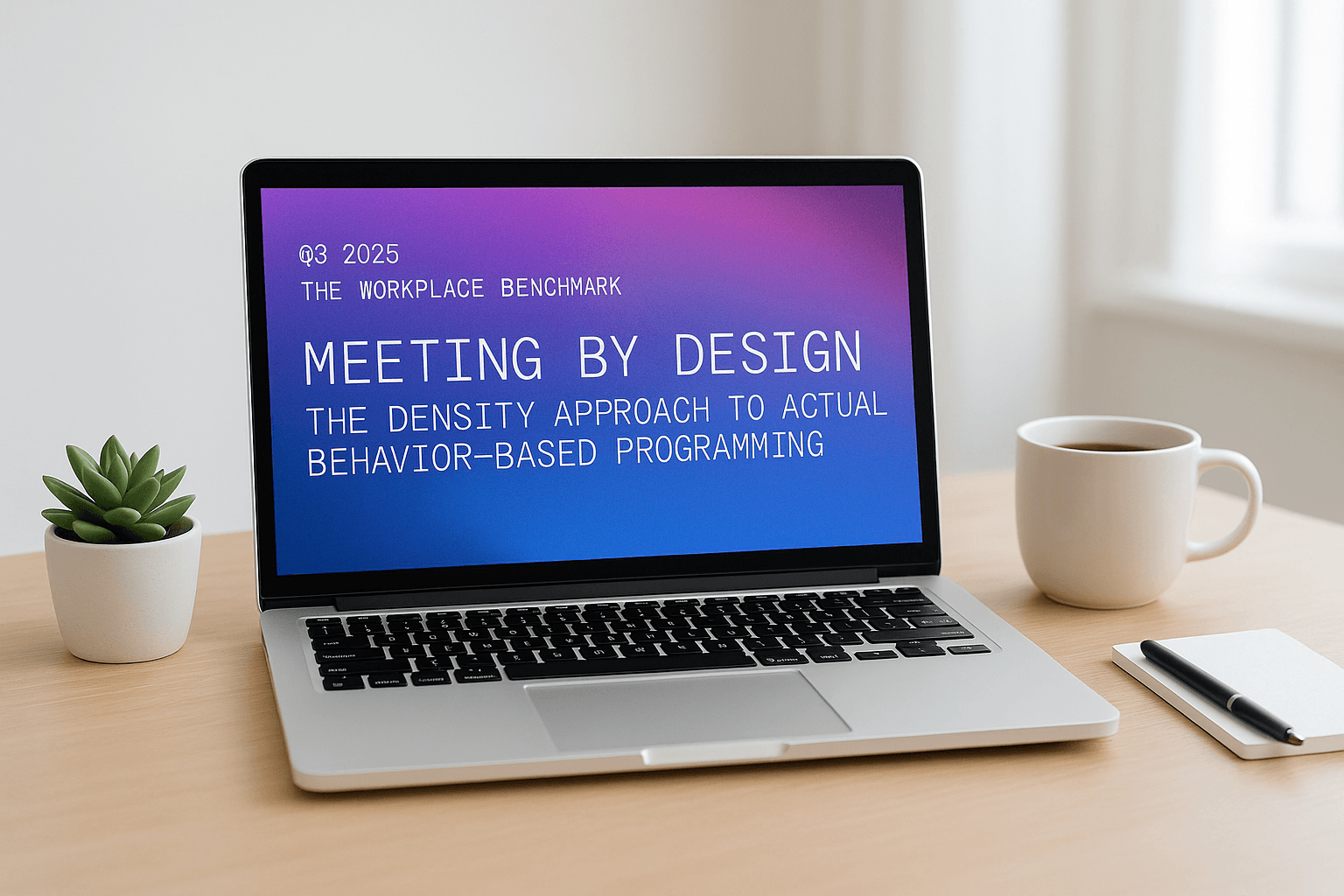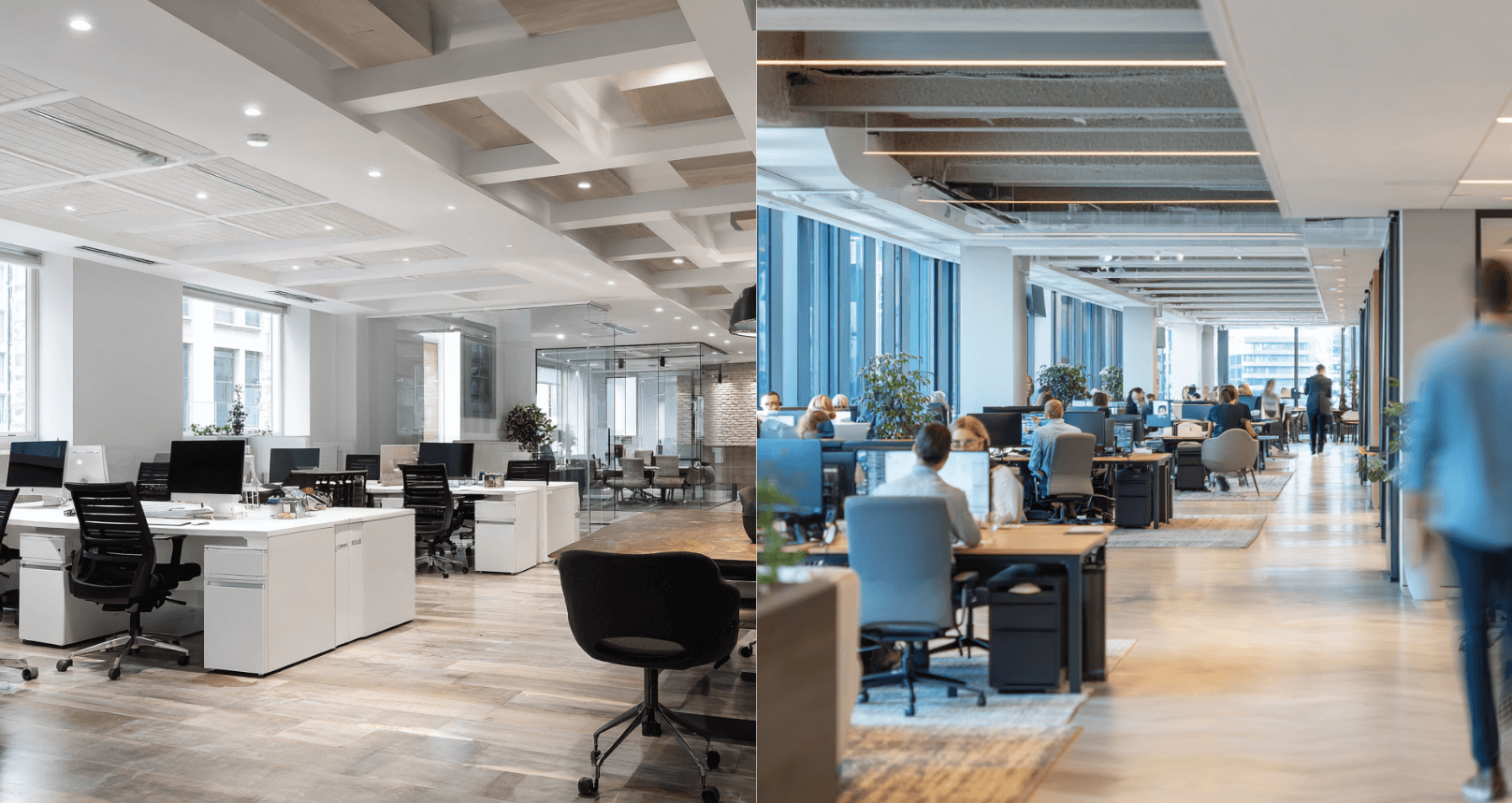Navigating post-pandemic changes in the workplace with Liis Reisner of Wise
We spoke with Wise's Liis Reisner to find out how she’s managing offices through the pandemic.
.jpg)
Wise provides fast, low-cost options for multi-currency bank accounts and money transfers. While the company is taking care of customers’ money, Liis Reisner, Workplace Project Manager, takes care of Wise’s offices. She helps build office spaces from start to finish for over 2,000 employees (affectionately known as “Wisers”).
With 260,000 square feet of real estate, she’s got a big job on her hands. We spoke with her to find out how she’s managing offices through the pandemic and what permanent changes she expects to see once everyone can return to the workplace.
Key takeaways:
- Wisers are split 50-50 when it comes to working remotely. Half love it, and the other half aren’t thrilled about working from home. Liis is taking extra care with Wise’s return-to-work plan to make the experience better for everyone.
- The pandemic fundamentally changed the way employees want to work. Liis predicts that in the near future, workplaces will have a more comfortable, inviting feel similar to what people experience when working from home.
Adapting to the pandemic
Like every company across the globe, the pandemic has had a tremendous impact on the offices at Wise. To keep employees safe at work, Wise set up hand sanitizer stations, hired additional cleaning services, and created wayfinding that prevents face-to-face encounters.
Despite these safety measures, Liis says none of their offices are fully open yet. With a distributed global workforce, Wise has to adapt health and safety policies to the government regulations of each office’s country.
The pandemic also prompted Liis to move Wise from 100% assigned seating to 100% unassigned. The 1:1 seating already wasn’t working for them due to the company’s rapid growth.
Liis describes their post-pandemic seating plan as “an activity-based workspace.” She says, “There will still be neighborhoods and areas within the office but no name-tagged desks." This new approach provides the flexibility Wise needs to accommodate continued growth.
Managing the changes
It’s difficult to navigate changes of this scale in the best of circumstances. Liis faces the added challenge of introducing this new way of working to a staff that’s weary from the personal and professional upheaval caused by the pandemic. It’s a tricky situation.
Liis explains, “There are people who are fine with it, but the loudest ones are the ones that are not happy. Definitely, it requires more explanation, more change management from our side to make everyone feel welcomed at the office and make them feel they can do their best work here.”
Central to her change management plan is getting a better understanding of the activities Wisers do throughout the day. She wants to ensure she provides enough special areas within the office to support these activities.
Making home an extension of the workplace
The pandemic brought on a sudden change from in-office working to working from home, and not everyone had a space set up to support this. Wise provided a work-from-home stipend to help employees get what they needed to create a workspace they could be productive in.
Even with this assistance, some Wisers simply don’t have the space at home or have too many unavoidable distractions. Liis has opened offices (with capacity limits dictated by local restrictions) to accommodate these workers.
If you don't actually have a home environment where you can work from, then the offices are open. You can go to the offices to do your best work.
Based on surveys they conducted, most Wisers want to come into the office at least two to three days per week and work from home the rest of the time. “Some people are very comfortable at home. And some people find it very difficult at home,” she says. Wise’s post-pandemic solution will support a hybrid work arrangement where employees can choose when they want to come to the office.
Predicting the future of work
Liis envisions the future of work as being very activity based. Instead of rows of desks, there will be lounge areas and private spaces for calls to connect with remote workers.
I imagine that offices are going to have a more homey feeling than they used to in the past. People now like working from home, and we have to bring the home to the office as well.
Wise has already started this transition to a more homey workspace. They maintain some standard designs across all their offices but have started incorporating local cultural designs as well. For example, in the Singapore office, they’ve added tiger-shaped rocks and emphasized the use of wood throughout.
These little touches make a huge difference in the overall atmosphere of the office and help create that “home away from home” feel that Liis predicts will be an essential feature for offices in the future.
Key Takeaways

DisruptCRE founder shares how corporate real estate is changing
Companies are moving employees from underutilized offices into "space as a service” options with utilization data.
Watch now
Half of offices are empty but you still can’t find a meeting room
Employees waste up to 30 minutes a day looking for a meeting room to meet in workplaces.
Read moreMost recent

Meeting space playbook: programming ratios that really work
Forget static formulas. This new research-driven playbook shows how to use real behavior to right-size your office for today’s meetings.

Space waste: The industry’s naughty and nice list
Our sensors spilled the beans: What industry is winning, who's wasting and who's hogging your office real estate.
.png)
Improve your occupancy sensor RFP with our best practice guide
Discover essential questions to simplify your occupancy sensor RFP process and confidently choose the right vendor.
.png)
Room raiders: The office upsizing epidemic
Tiny teams hogging big rooms leave large groups stranded—welcome to the new war for meeting space!
Explore other Density Products
Atlas for Workplace
Insights for the workplace that help you cut costs and deliver better spaces.
Learn more